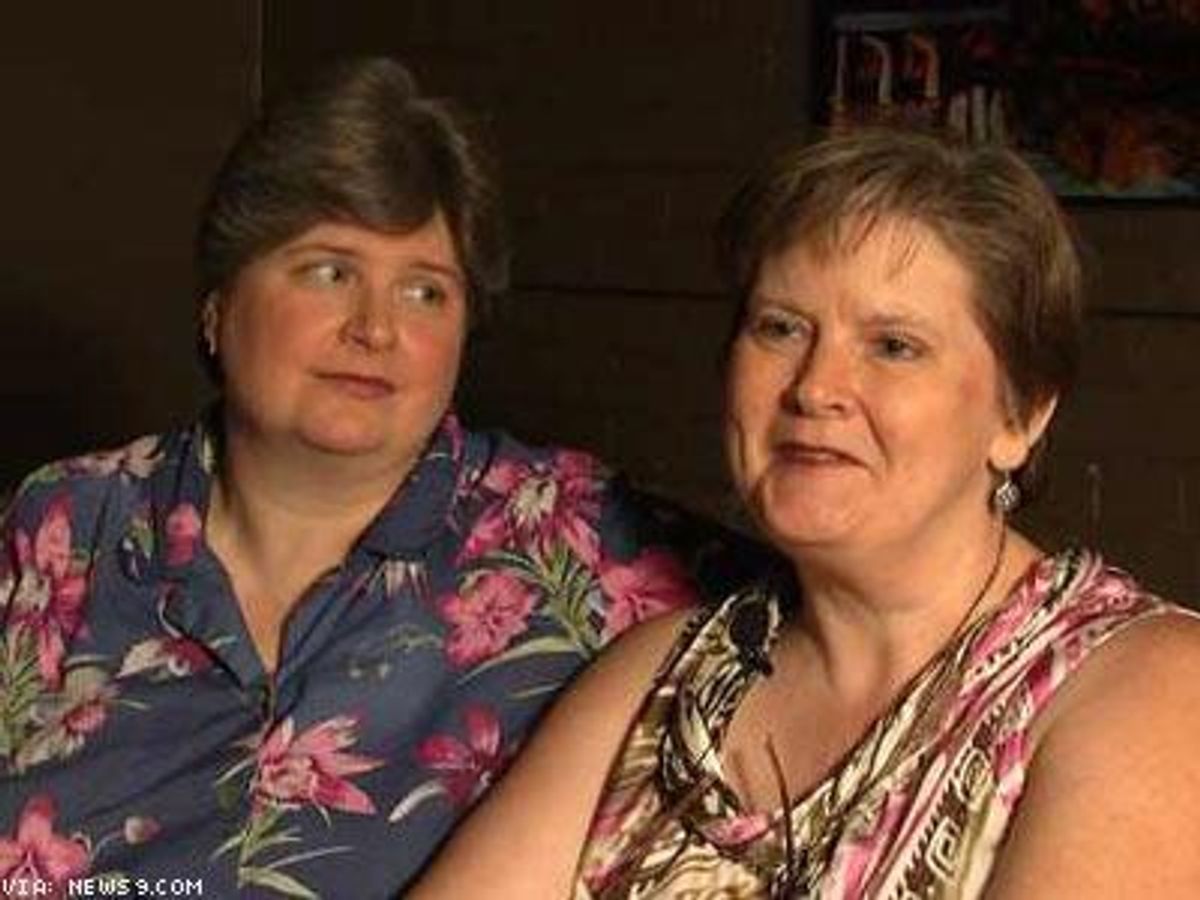The U.S. Court of Appeals for the Tenth Circuit ruled Friday that Oklahoma's ban on marriage equality is unconstitutional, and that couples should be able to wed.
This is the second time a three-judge panel from the Denver-based court has found that a state's ban is unconstitutional. In June, the same panel came to the same conclusion around Utah's ban on same-sex marriage. According to the Associated Press, Friday's ruling is the first time a federal appellate court ruled that the Supreme Court's 2013 ruling striking down a section of the Defense of Marriage Act also meant that states could not deny same-sex couples the right to marry.
As of now, marriages for same-sex couples both in Oklahoma and Utah will remain on hold. This is the 26th consecutive federal or state court ruling to come down on the side of marriage equality since the Windsor ruling in June 2013.
According to the Human Rights Campaign, the 2-1 decision was written by Judge Carlos Lucero, who was joined by President George W. Bush appointee Judge Jerome Holmes. Those jurists were the same who voted to strike down Utah's marriage ban in the June decision.
The state of Oklahoma will have the chance to request an appeal before the full bench of the Tenth Circuit. Alternately, the case could also bypass that en banc session and appeal directly to the U.S. Supreme Court.
Couples Mary Bishop and Sharon Baldwin, and Gay Phillips and Susan Barton, sued the state of Oklahoma in November 2004 for enforcing an amendment to the Oklahoma constitution prohibiting the state from performing or recognizing marriages for same-sex couples. In January, two days after Judge Terence Kern's ruling in favor of the plaintiffs, the state filed an appeal to the U.S. Court of Appeals for the Tenth Circuit. The Bishop case in Oklahoma was scheduled for appeal with the Utah marriage case, Kitchen v. Herbert. The appeals on both cases were heard by the same three-judge panel of the Tenth Circuit, in April.


















































































